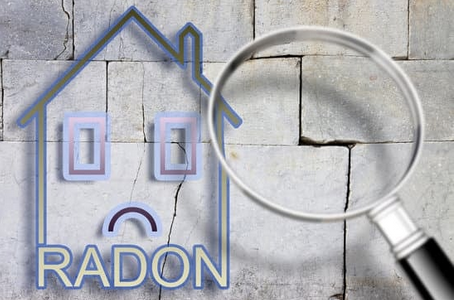January Is National Radon Action Month! Test Your Home Today!
go.ncsu.edu/readext?906099
en Español / em Português
El inglés es el idioma de control de esta página. En la medida en que haya algún conflicto entre la traducción al inglés y la traducción, el inglés prevalece.
Al hacer clic en el enlace de traducción se activa un servicio de traducción gratuito para convertir la página al español. Al igual que con cualquier traducción por Internet, la conversión no es sensible al contexto y puede que no traduzca el texto en su significado original. NC State Extension no garantiza la exactitud del texto traducido. Por favor, tenga en cuenta que algunas aplicaciones y/o servicios pueden no funcionar como se espera cuando se traducen.
Português
Inglês é o idioma de controle desta página. Na medida que haja algum conflito entre o texto original em Inglês e a tradução, o Inglês prevalece.
Ao clicar no link de tradução, um serviço gratuito de tradução será ativado para converter a página para o Português. Como em qualquer tradução pela internet, a conversão não é sensivel ao contexto e pode não ocorrer a tradução para o significado orginal. O serviço de Extensão da Carolina do Norte (NC State Extension) não garante a exatidão do texto traduzido. Por favor, observe que algumas funções ou serviços podem não funcionar como esperado após a tradução.
English
English is the controlling language of this page. To the extent there is any conflict between the English text and the translation, English controls.
Clicking on the translation link activates a free translation service to convert the page to Spanish. As with any Internet translation, the conversion is not context-sensitive and may not translate the text to its original meaning. NC State Extension does not guarantee the accuracy of the translated text. Please note that some applications and/or services may not function as expected when translated.
Collapse ▲
January is National Radon Action Month. According to the North Carolina Department of Health and Human Services(NCDHHS), each year upwards to 21,000 people die from radon-induced lung cancer. Roughly 54 percent of those diagnosed with early-stage lung cancer are expected to live no more than five years after diagnosis. The NCDHHS cites that an estimated 450 North Carolinians die each year due to radon-induced lung cancer. Unlike tobacco, radon is colorless, odorless, and tasteless. It is also natural. These characteristics make it hard to detect unless the home is tested.
According to the Center for Disease Control 77 out of 100 counties in NC have indoor air levels of radon above action level of 4pCi/L. While there is no known safe level of radon, 4pCi/L is the level at which the Environmental Protection Agency(EPA) recommends Americans repair this situation in their home.
The North Carolina Radon Program of the NCDHHS which educates families and homeowners about radon gas, how to test for radon gas and how to lower the radon levels within a home is providing free radon test kits. The radon test kits are available by ordering through the North Carolina Radon Program website. There is no charge for these kits; both postage and analysis costs are paid.



